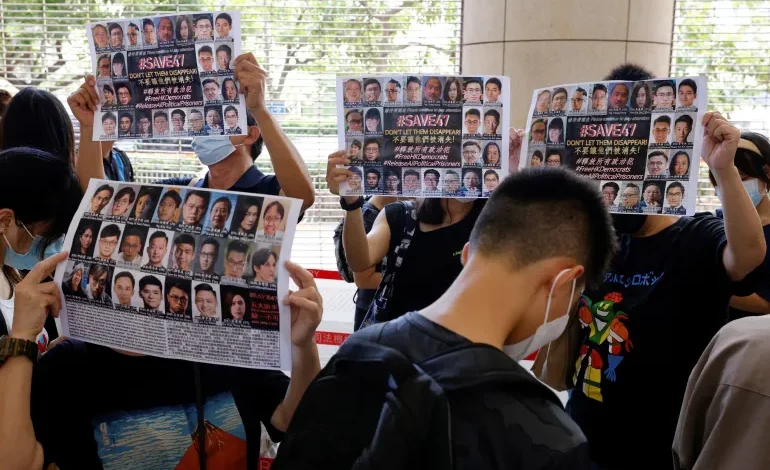A Hong Kong court on Tuesday sentenced prominent pro-democracy activist Benny Tai to 10 years in prison, the longest sentence handed down in the territory’s largest national security case to date, Al Jazeera reports.
The ruling, along with years-long jail terms for dozens of other activists, marks a significant escalation in the ongoing crackdown on dissent.
Tai, a 60-year-old legal scholar and key figure in the 2014 and 2019 pro-democracy protests, was convicted of organizing an unofficial primary election in 2020. Prosecutors alleged the election, aimed at selecting candidates who would challenge the government’s budget and potentially force the ouster of the city’s leader – a process allowed under Hong Kong’s Basic Law – constituted an attempt to “overthrow” the government.
Forty-seven defendants were arrested in a predawn raid in January 2021. Thirty-one, including Tai, pleaded guilty, receiving shorter sentences in mitigation. Following a 118-day trial – significantly delayed and overseen by three hand-picked judges – the remaining 14 were found guilty of subversion, with two acquitted. The trial bypassed many aspects of Hong Kong’s common law system, including trial by jury and the presumption of bail.
Among the other significant sentences were seven years and nine months for Owen Chow, a 27-year-old candidate in the election; seven years for former journalist Gwyneth Ho; and seven years and three months for Australian citizen Gordon Ng, who promoted the election. Former journalist and legislator Claudia Mo received four years and two months, and prominent activist Joshua Wong received four years and eight months.
The sentences have sparked strong international criticism. Australian Foreign Minister Penny Wong confirmed lodging a formal complaint with Hong Kong and Chinese authorities over the sentencing of Australian citizen Ng, while the U.S. consulate in Hong Kong issued a statement strongly condemning the verdicts.
This case is the latest development in a broader crackdown on dissent in Hong Kong. Since Beijing imposed sweeping national security legislation in 2020, criminalizing secession, terrorism, subversion, and collusion with foreign forces, and Hong Kong subsequently passed its own national security legislation earlier this year, the Georgetown Center for Asia Law reports that 286 individuals have been arrested and 156 charged under national security or colonial-era sedition laws.
The crackdown follows the large-scale, sometimes violent, 2019 anti-government protests triggered by then-leader Carrie Lam’s proposed extradition bill. Those protests, the largest anti-government movement in China since Tiananmen Square, underscored deep-seated concerns over political freedoms and the desire for greater democratic participation in Hong Kong.









